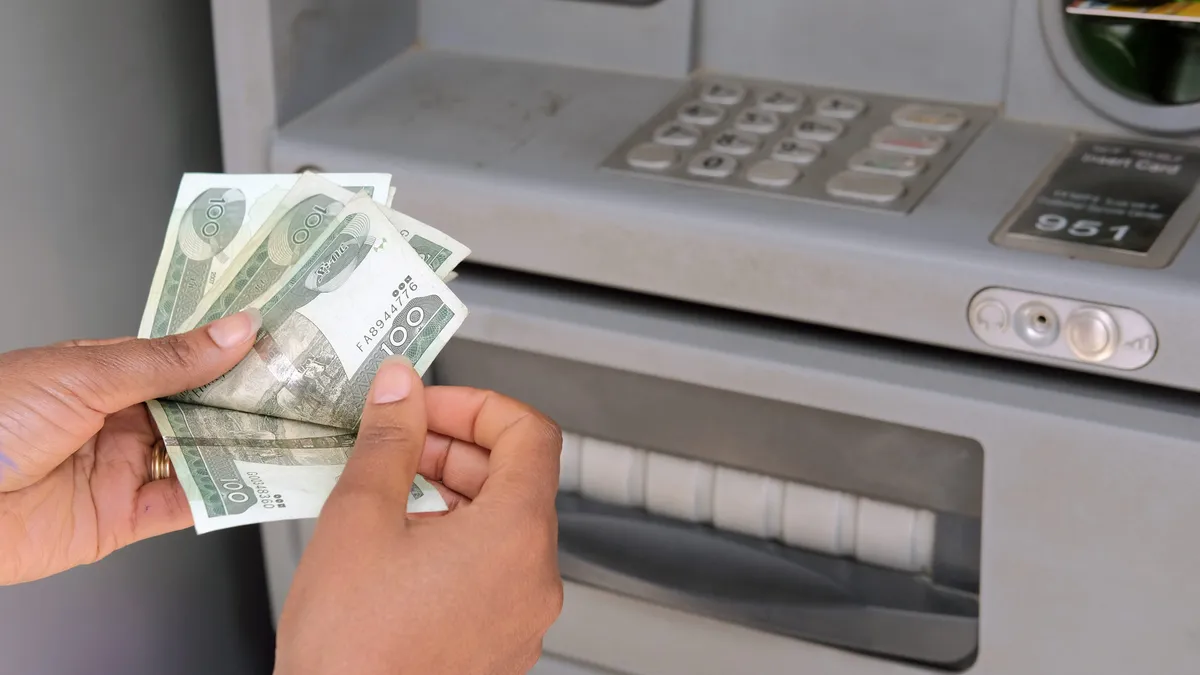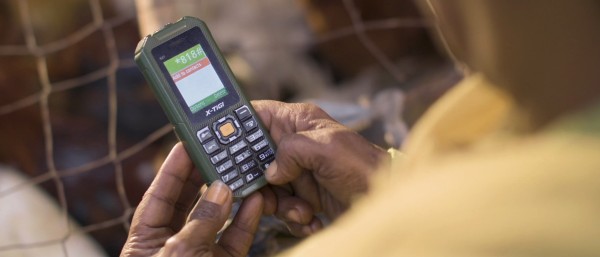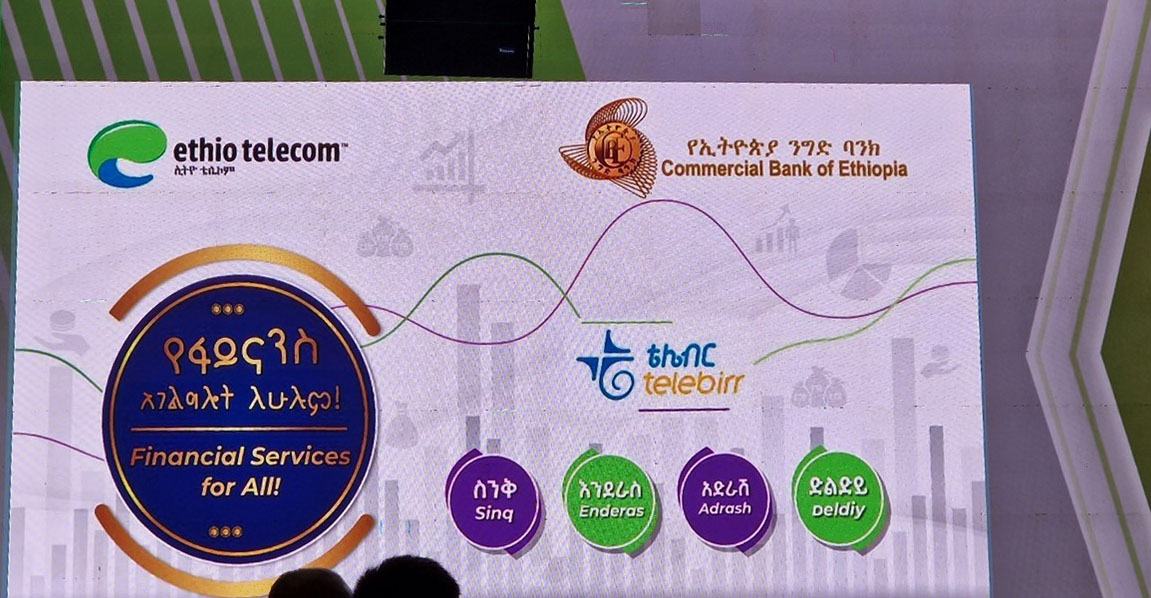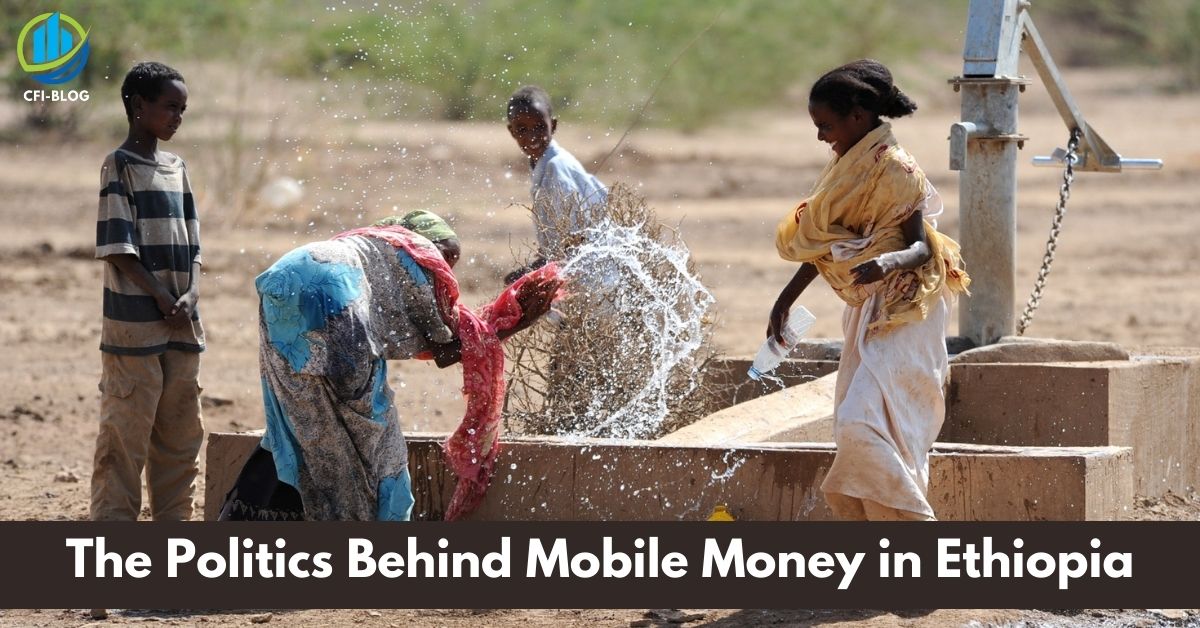It is no doubt that mobile money services in Africa have increased to a great extent. After the mobile revolution which was led by Kenya, the country had seen massive growth in mobile money services. Most people didn’t have a bank account and would follow informal ways to transact money, but with the introduction of mobile money services, the sector had begun changing into an organized manner. A lot of people joined the services and enjoyed the benefits provided.
However, it was not the case in Ethiopia, despite being the second most populated country in Africa, it didn’t have mobile money services. It was until 2015 that Ethiopia got its first mobile money service provider. So, let us see why Ethiopia opened its door to mobile money services later than other countries.
What are Mobile Money Services?

Mobile money services provide easy methods for people to send money and receive money through their mobile phones. This has only grown in the last decade. With the introduction of mobile money services, many people have got the chance to use financial products. It is cost-effective as you just need to have a stable internet connection to send money. Gone are those days when you had to get to a bank to send money to someone or go to an ATM machine to collect cash for payments.
As a matter of fact, mobile money services have helped people avoid the charges that a bank would charge upon every transaction or withdrawal that was made from your account. Many traditional banks have also started to partner up with fintech companies or mobile service providers to give their user base the option for net banking. You can access your bank account on your mobile phone itself.
To transfer money or to send money, all you need to do is type in the amount and then send it, the amount is transacted in seconds. As a mobile phone has become a necessity, almost all of the population today uses a smartphone. Everyone now using a smartphone can transfer money or receive it. It has allowed people living in remote places that didn’t have access to physical banks to have an electronic account themselves.
Well, you might wonder, what does Mobile money transfer mean for financial inclusion? It means a lot to financial inclusion as everyone having a mobile phone can have basic access to financial services that they were not a part of. It is just as secure as a traditional bank, the app is encrypted for not to get hacked, and there are two pins required to open the app and initiate transactions. However, one must be careful about not sharing their Security pin with anybody.
According to reports published by GSMA, the number of people using a mobile money service has increased by 1 billion people, this is a huge success as a lot of people are still unbanked. They are at least getting basic banking facilities in a mobile app. In recent times as per reports, there are 270 active mobile money service providers across the globe, providing easy and safe ways of transferring and receiving money. Mobile money has been popular in countries in Asia, Latin America, and African continents.
If you want to know, ‘How does innovation happen in the financial inclusion movement and elsewhere?”, mobile money services can be a great example of such innovation. It is super easy to work a mobile money service, you need to create an account for accessing your mobile money. You can use any type of phone, as the account will be registered on your mobile phone.
You even do not have to have a net connection to send money or receive money as the account is linked to your mobile number. Mobile money can be used for paying in shops or paying any kind of bill. Yes mobile money can be used in everything that requires a transaction of cash, it is a cheaper way of transferring money as it does not ask for any kind of charge for transferring or receiving.
Why are Mobile Money Services Important?
Mobile money services were started by mobile service operators. For conducting mobile money services, the mobile operators needed the necessary license for functioning. This model was very popular in places that didn’t have bank accounts, that’s why the people living in those areas joined this service for getting access to basic financial services. Some of the mobile money services are provided by fintech companies or banks.
Apart from that, post offices also provide affordable loans to the underserved population. They provide financial assistance to people who do not have access to the formal financial system this is how post offices fill financial inclusion gaps. To get started with the service, a user should visit their center and get verified, for verification, basic documents are needed. After the verification, you will have to deposit money, so that money gets reflected in your e-wallet.
Throughout the process, the mobile money agent will help you understand the procedure. The process of sending money is quite easy, it is just like sending a message. You need to type in the number of the recipient, then type in the amount, and then click on send. Your Transaction will take place.
However, make sure that the person to whom you are sending money should have a mobile money account. Most of the time the e-wallet number is the same as the mobile number, but it is not compulsory though.
What Benefit Did the African People Receive from Mobile Money Services?

If we look at Africa particularly, less than half of the population does not have a bank account. When mobile money services started people were really affected by the services they got from them. Well, we have mentioned some of the major impacts that mobile money services have brought in Africa.
1. Mobile Money Can Prepare People for the Worst
According to many financial reports of African countries, the report reveals that due to mobile money services, people do not face problems in the case of emergencies such as natural disasters, or family illnesses. It has been observed that in the time of emergencies, families do not have to waste any time collecting their money from banks, they can pay for goods or medical services with their mobile phones themselves.
In Kenya also this can be seen, in times of extreme climate, families didn’t have to cut down any money for their food supplies. They had the money to pay for their medical services. This is the case because, with mobile money services, families can transfer money to their extended families via mobile phone.
So, there is risk sharing taking place due to mobile money services. This is not only happening in Kenya, this can be seen in countries like Bangladesh, Mozambique, Uganda, and many more. In all these countries mobile money services have helped communities share the risk and stand tall at times of emergencies.
2. With Mobile Money, Households Save High Amounts of Money
Mobile money services prepared families to deal with emergencies because they cultivated saving habits in families. Especially women who had accounts in some mobile money services would name their accounts according to their goals. This allowed them to track their savings toward the goal, due to which they were encouraged to save money.
The mobile money app would even send SMS notifications for saving money, it kept the women engaged in saving more amount of money. Even though researches also support this, it has shown that families living that had mobile money services saved more than families that didn’t have mobile money services, there was a 15% of difference in savings.
3. With Mobile Money, the Transaction Process is a lot more Transparent
All the transactions made by mobile money services are kept on record. This allows them to track down their spending and helps them to find a particular transaction that was not supposed to happen. As there is a record of every transaction, it becomes easy for the tax system to audit the business and collect taxes.
With mobile money services, informal sectors can get access to formal banking systems. Digital transactions are just safe as traditional banks which proves that digital credit in Africa: Are Nano loans safe for consumers. This will help in making the economic system a lot more organized. Mobile money services can bridge the gap between the private system and government sectors as their services provide them to collect taxes and help people get included in the financial system.
4. Mobile Money Services Can Lead to Occupational Change
With the increase in the usage of mobile money services, a lot of people are getting to understand the benefits of the service. You can transfer money and receive money at a fast pace. With these facilities, the people using these services, have started to change their occupations. Well, the change has been mainly seen in the case of women, most of them have shifted from agriculture to small-scale business.
With mobile money services, it is easy to run a business. Similarly, this kind of example can be seen in other countries as well. In the case of Uganda, many women have left rural places and have settled in urban places to earn money. They could do it because it will be easier for them to send money to their families through mobile money services.
5. Positive Effects on Women and Poverty
There were multiple sectors where we could see a positive impact, and many people who were unbanked got the opportunity to use financial services. Financial inclusion in areas has increased. The increase in usage has led to an overall increase in total earnings by households. With the increased amount in savings, these households have been able to come out of poverty.
According to reports around 196,000 households have been successfully able to come out of poverty. This number is equal to 2% of the total population of Kenya. With mobile money services, women were the most that were affected. Most of the women shifted from the farming profession to small-scale business. A lot of them have left for urban cities as they don’t fear sending money to their families, which can be done by many mobile money services.
This shows that if women are given services that make them financially independent they can make household decisions. Some of the women have also joined the mobile money services as employees, they have become agents that work in centers. These women educate others on the benefits of mobile money and make them understand how to become a member of it and how to use it.
Challenges Faced By Mobile Money Services
Well, we have gone through the benefits of mobile money services, and we have seen the positive effects that it has bought on the lives of women in poverty. However, to make this happen Mobile Money services have crossed certain challenges:
- They had to hire and maintain a huge network of agents that could educate the rural population about the benefits of Mobile Money. The agents work at the centers for verification and cash deposits.
- They had to make the registration process smooth, and the process of the app easy enough for the people to understand. The instructions should be short and crisp for the rural population to understand.
- The mobile money services had to develop the infrastructure in order to scale their services. They had to invest a lot of money in infrastructure.
- After the technology was developed, they had to build a regulatory environment that would allow people to understand and accept the service.
The development should take place at a very fundamental level. If people do not have access to mobile devices then they cannot use mobile money services. People should be given training on how they will be using the mobile device so that they can operate mobile services. If we look at the country Mozambique, The information about mobile money services was spread during the mobilization process.
It was spread by mobile money agents. As the information was spread at the time when people were buying mobile phones, it made them interested in the mobile money service. This strategy was one of the important reasons why mobile money services had huge success in Mozambique.
Rise of Mobile Money Services in Ethiopia

After the East African mobile revolution, a large number of people started using mobile phones. This was seen in almost every country on the African continent. However, Africa’s second most populated country and growing economy, Ethiopia have not been an active member of the revolution that had taken place. However, recently they have also been impacted by the revolution. Ethiopia has a reputation for the rapid increase of GDP among other nations, their growth rate is about 10 percent annually.
Although there is GDP growth the country does not have high mobile penetration, it is considered among the lowest among every other country. According to reports it was mentioned to be around 31% compared to the African average which was 73%. In the year 2012, the percentage of mobile penetration was about 22% which has increased with the influence of the mobile revolution.
One of the main reasons for its low mobile penetration would be the country having only one telecommunication operator, Ethio Telecom, which is also 100% owned by the government. This has been done by the government intentionally. Due to this, there has been limited innovation in the mobile sector.
However, this action should not be shocking if we looked at how the government functioned. Ethiopia was controlled by Meles Zenawi for more than 20 years, he was the prime minister from 1992 till 2012. In the book he had written, States and Markets: Neoliberal Limitation and the Case for the Developmental State”, in that he mentioned how improved technology in his country through continuous innovation increased the overall economy.
So, he did this by enhancing the existing capacity to constantly innovate and refine the technology that was being used. The government used technology in every industry for improving their efficiency. Zenawi believed Ethiopia did not have the budget or the manpower to spend money on new-age technology. This new-age technology would help the existing one develop and could be used in other industries as well.
However, Ethiopia didn’t have the capital they started working with the existing technology itself which served their economy very well. Up until this time Ethiopia didn’t have any mobile money services under the leadership of Zenawi. After Zenawi passed away the new Government followed the steps of Technology driven Zenawi, they also focused on innovation and integration of technology with other industries.
And later on, the young government has taken an interest in mobile money services. Now it has taken an interesting turn, as the past government did not have any plan for mobile money services, the new government plans to expand mobile money technology.
With the new government planning to accept mobile money services, the national bank of Ethiopia in 2012, chalked out some guidelines about the functioning of mobile money services. These rules would go into effect from the year 2013 itself. As the government initiated the development of mobile money services, it made Ethiopia among the last countries that accepted mobile money.
Some economists cited that the reason for taking this decision by the government was to boost the economy and increase mobile penetration. After the decision had taken place there were several meetings conducted about the benefits that mobile money will bring to the country. Last year “Catalyzing Transformation through Technology: How Mobile Financial Services Contributes to the Growth of Ethiopia,” a meeting was conducted that focused on how mobile money will develop the country’s economy.
The meeting had members from the government, some financial institutions, and some important policymakers. They discussed how they had to develop the infrastructure for enabling digital payment services, and how they had to develop and create an ecosystem that would include all industries and businesses using mobile money services. Keeping this in mind, the National Bank conducted many workshops that taught the workshop attendees about the benefits and the uses of mobile money services.
In the year 2015, M-birr was launched as the first mobile money service in Ethiopia. They provide financial assistance in various regions throughout the country. M-birr got approval from the government in the month of March. M-birr is recommended by five MFIs (Micro financial institutions) for its members.
More importantly, this platform is used to target rural households and provide them with financial assistance. These platforms generate employment, by employing rural youths as their mobile money agents. These mobile agents work at mobile money centers that help people understand mobile money functions.
Nowadays, there a many mobile money service providers, one of them is HelloCash, which aims in having around 20,000 agents within a couple of years. The industry is growing constantly. However, the industry has not yet developed to its fullest; there is a lot of work that needs to be done.
Although the new government was formed after the death of Meles Zenawi–-the former Prime Minister of Ethiopia, it (the new incumbent government) had planned to expand mobile money services, and in fact, it did well with the same. After several meetings, which talked about the challenges that mobile money services will have to face, finally in the year 2015 M-birr was launched. It was the first mobile money service in Ethiopia. The platform helped the rural population mainly with its services. The industry is still growing to date.
Frequently Asked Questions (FAQs)
Q1. What are the mobile money providers in Ethiopia?
The first mobile money provider was M-BIRR which was launched in 2015, after this a lot of mobile money providers joined the industry and it is going. Some of the major mobile money providers are, HelloCash and Kifia.
Q2. How many people use mobile money in Ethiopia?
TeleBirr is a mobile money operator that was launched by the government-owned Ethio Telecom and has a user base of more than 20 million. The number is still growing, according to reports the number of people using mobile money in Ethiopia is 5.2 percent of their population.
Q3. Is there mobile banking in Ethiopia?
There is mobile banking in Ethiopia since the government changed in 2012. This new government is providing its people with mobile money services. The first mobile money service that was launched was M-BIRR. It was launched in the year 2015. Since that, the market is just been growing. Several other mobile money providers have also stepped in such as HelloCash, and Kifia.
Bottom Line
Mobile money services provide people ease with sending money and receiving money. The industry has been growing ever since the turn of this decade; most countries are adopting this service to boost their economy. It just does not help the government, even normal peoples also gets a lot of benefits. In recent times, Africa has seen a huge mobile revolution, and many countries have taken part in it.
Obviously, the revolution began due to low mobile penetration; the telecom industry was owned by the government. So, there was no growth in the mobile penetration rate. Countries like Kenya were at the forefront of the mobile revolution, and due to this, they have seen a huge growth in mobile money services. However, this was not the case in Ethiopia; the government owned the telecom industry, which caused problems in growing the mobile penetration rate.
Author Profile

- Jonas Taylor is a financial expert and experienced writer with a focus on finance news, accounting software, and related topics. He has a talent for explaining complex financial concepts in an accessible way and has published high-quality content in various publications. He is dedicated to delivering valuable information to readers, staying up-to-date with financial news and trends, and sharing his expertise with others.
Latest entries
 BlogOctober 30, 2023Exposing the Money Myth: Financing Real Estate Deals
BlogOctober 30, 2023Exposing the Money Myth: Financing Real Estate Deals BlogOctober 30, 2023Real Estate Success: Motivation
BlogOctober 30, 2023Real Estate Success: Motivation BlogOctober 28, 2023The Santa Claus Rally
BlogOctober 28, 2023The Santa Claus Rally BlogOctober 28, 2023Build Your Team – the Importance of Networking for Traders
BlogOctober 28, 2023Build Your Team – the Importance of Networking for Traders

